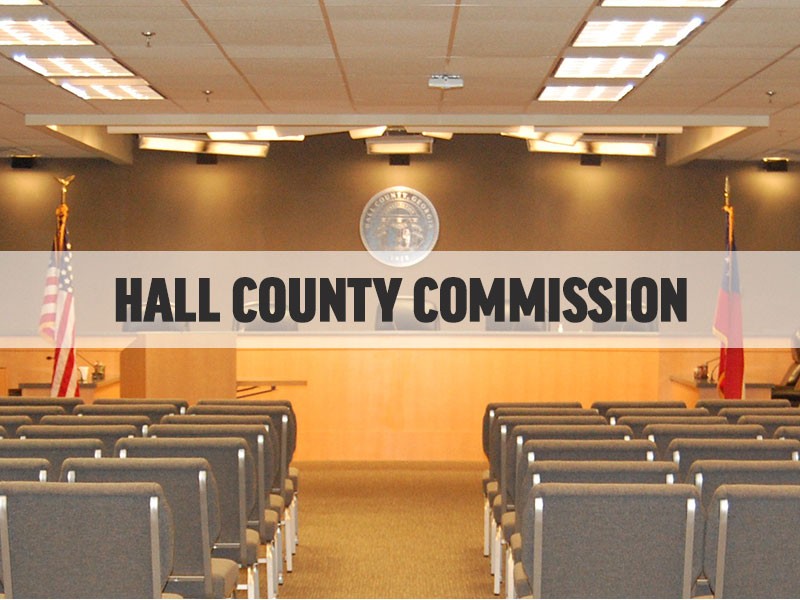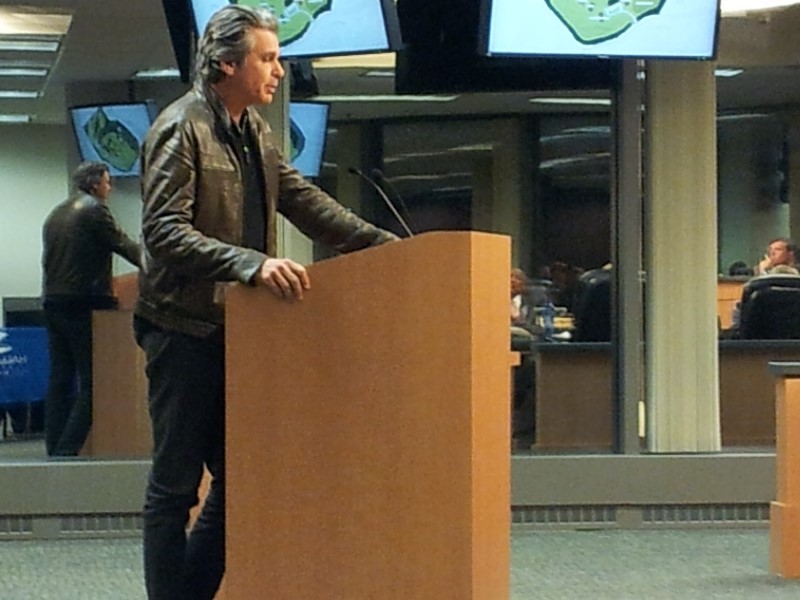Since receiving a recommendation for denial from the Hall County Planning Commission back in November amidst much public opposition, Straight Street Revolution Ministries went to work.
In the months that followed, Straight Street hosted several meetings with surrounding citizens of their proposed rehabilitation facility for victims of sex trafficking in an effort to best address safety concerns and after putting forth over a dozen self-imposed conditions on their application, they were given a unanimous vote of approval by the Hall County Board of Commissioners on Thursday.
The decision was not without its dissenters, however, as several citizens were still not swayed by the added conditions which included reducing the number of homes from 17 to 7 and installing a 200-foot buffer around property lines.
“We are very concerned about the risk of unwanted, potentially dangerous visitors from a victim’s former life,” said Mike Klukaszewski, a neighbor to the facility. “You cannot argue that the risk is lower in our neighborhood if this facility is built, it is obviously higher even if the scale of the project has been reduced.”
Those speaking in opposition of the proposal were almost all in favor of the mission of Straight Street Ministries and applauded their efforts in trying to rehabilitate women victimized by the sex trafficking industry; they just wanted the facility to be built somewhere else.
“No matter where you put this in the county,” said Commissioner Jeff Stowe before casting his vote to approve the rezoning request. “Somebody’s not going to be happy and unfortunately we have to make a tough decision.”
Stowe went on to say that he asked Hall County Sheriff Gerald Couch to call police agencies in Nashville and Franklin County, Tennessee to see if there were any safety issues associated with Thistle Farms or the Pure Hope Foundation, both similar facilities to what Straight Street is proposing, and police in those areas told Couch that no crime issues could be pointed to either facility and each police department said ‘it was a blessing to their community’ to have those facilities in the area.
“We don’t take these things lightly,” Stowe said. “I’ve done my homework.”
During the deliberation, Commissioner Scott Gibbs asked that the number of homes be reduced even further down to five and the max number of women in the program be capped at 20 instead of 28. The plan for Straight Street is to build one home in the first year, with an additional home to be added each year should things go according to plan.
Gibbs also made requests for a wooden fence to run the length of the property touching Weaver Road and for additional cameras to be run at the gate and along property lines in addition to monitoring the homes.
“I understand that we’ve got some unhappy people, we’ve got some happy people,” Gibbs said. “But at the end of the day, what you’ve got to understand is they could have done this and have no oversight. They could’ve built within 20-30 feet of the property line…I just think that they are going above and beyond with 200 foot setbacks.”
Wes Robinson, the lawyer representing the neighbors opposed to the proposal, says they are still deciding on whether or not they plan to appeal the decision.


With the help of lawyer Wes Robinson (left), neighbors opposed to the application voiced their concerns to the Hall County Board of Commissioners on Thursday.

The design of the facility presented by Brian Rochester of Rochester & Associates, Inc.

Free Chapel pastor Jentezen Franklin came out to support Todd Robson and Straight Street Revolution Ministries at Thursday's Hall County Board of Commissioners meeting.
http://accesswdun.com/article/2017/1/495146/controversial-rehab-facility-for-sex-trafficking-victims-recieves-approval-from-the-board-of-commissioners
